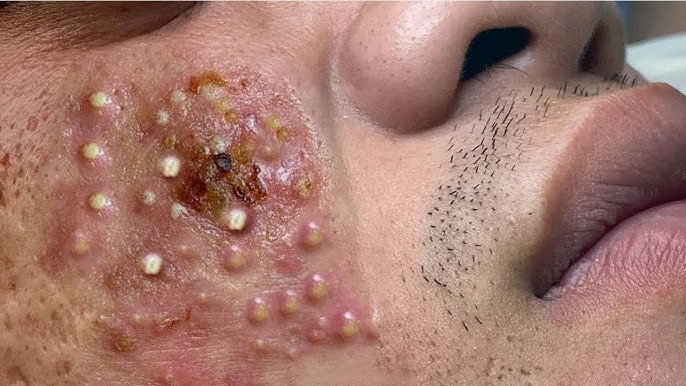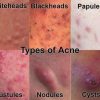Bacteria play a role in acne, but they are not the sole cause. The primary bacterium associated with acne is Cutibacterium acnes (formerly Propionibacterium acnes). This bacterium naturally lives on the skin and inside hair follicles. When pores become clogged with excess oil (sebum) and dead skin cells, C. acnes can multiply in this environment, leading to inflammation and breakouts.
However, acne is influenced by multiple factors, including:
- Hormones: Androgens (like testosterone) can increase oil production, leading to clogged pores.
- Genetics: A family history of acne can make someone more prone to it.
- Diet: Some studies suggest that high-glycemic foods and dairy might worsen acne in some individuals.
- Skincare & Hygiene: Using the wrong skincare products or over-cleansing can disrupt the skin barrier.
- Stress: Stress hormones can trigger or worsen breakouts.
Because C. acnes is a normal part of the skin microbiome, the goal of acne treatment isn’t to eliminate it entirely but to manage oil production, inflammation, and clogged pores. Treatments may include topical or oral antibiotics, benzoyl peroxide, retinoids, and hormonal therapies.
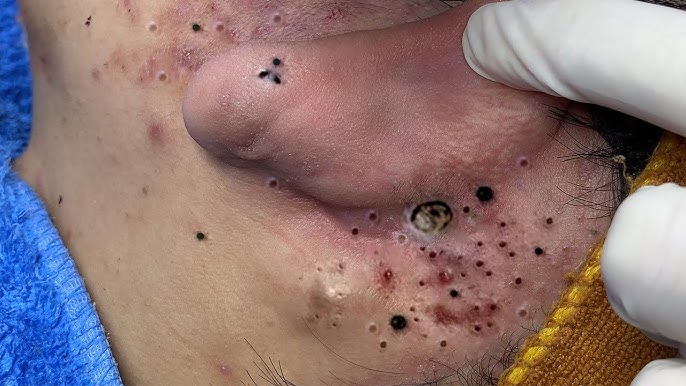
There are several effective acne treatment options, depending on the severity of your breakouts. Here’s a breakdown:
1. Topical Treatments (Applied to Skin)
- Benzoyl Peroxide: Kills C. acnes bacteria and reduces inflammation. Available in over-the-counter (OTC) and prescription strengths.
- Salicylic Acid: Helps exfoliate and unclog pores, preventing breakouts.
- Retinoids (e.g., Adapalene, Tretinoin, or Tazarotene): Vitamin A derivatives that prevent clogged pores and reduce inflammation. Stronger ones require a prescription.
- Antibiotics (e.g., Clindamycin, Erythromycin): Reduce bacteria and inflammation, often used with benzoyl peroxide to prevent antibiotic resistance.
- Azelaic Acid: Has antibacterial and anti-inflammatory properties, suitable for sensitive skin.
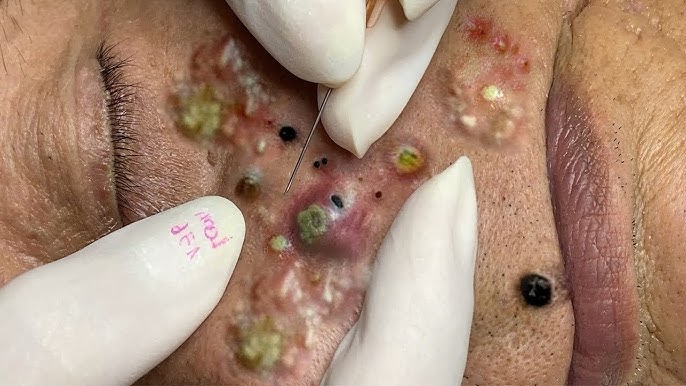
2. Oral Medications (For Moderate to Severe Acne)
- Oral Antibiotics (e.g., Doxycycline, Minocycline): Reduce bacteria and inflammation. Usually prescribed for short-term use.
- Hormonal Therapy (e.g., Birth Control Pills, Spironolactone): Regulates hormones that cause excess oil production. Best for women with hormonal acne.
- Isotretinoin (Accutane): A powerful oral retinoid for severe cystic acne. It reduces oil production and can provide long-term clearance but has potential side effects (e.g., dry skin, mood changes, birth defects if taken during pregnancy).
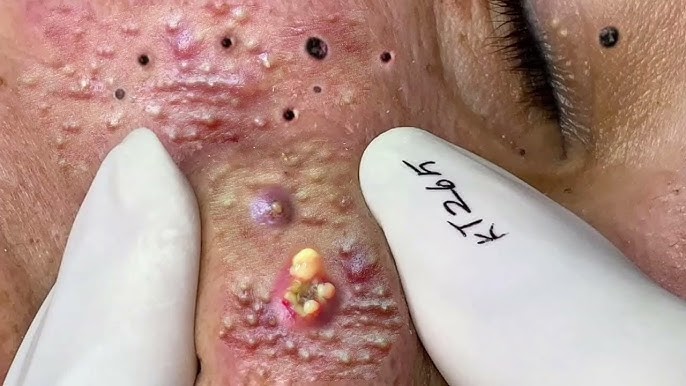 3. Lifestyle and Skincare Tips
3. Lifestyle and Skincare Tips
- Use gentle, non-comedogenic skincare products.
- Avoid picking or popping pimples to prevent scarring.
- Wash your face twice daily with a mild cleanser.
- Maintain a healthy diet, reducing high-glycemic foods and dairy if they worsen acne.
- Consider stress management techniques, as stress can trigger breakouts.
